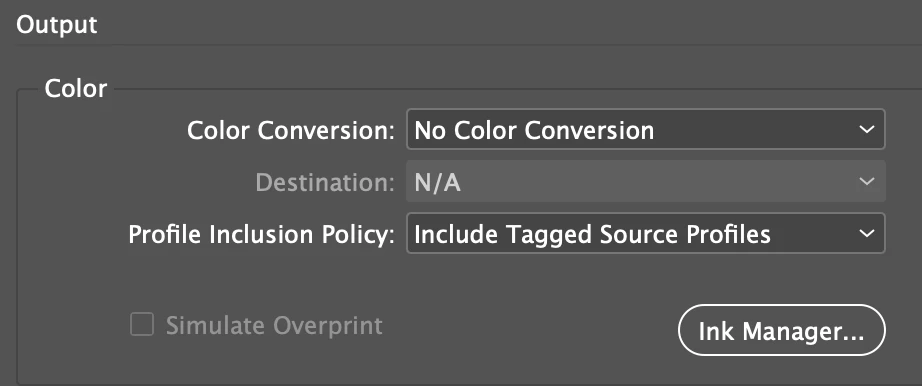Answered
This topic has been closed for replies.
It's greyed out because it's only applicable in situations where you are creating an old-school flattened PDF. They are automatically included in more modern PDF workflows that retain transparency settings hence it's greyed out, so your settings ARE in the PDF already anyway and just need to have Overprint Simulation toggled on/off accordingly in Acrobat under Print Production > Output Preview.
That being said, if someone is using a different viewer than Acrobat, you will have issues.
You might consider using Multiply on your illustrator objects rather than simply selecting overprint.
Sign up
Already have an account? Login
To post, reply, or follow discussions, please sign in with your Adobe ID.
Sign inSign in to Adobe Community
To post, reply, or follow discussions, please sign in with your Adobe ID.
Sign inEnter your E-mail address. We'll send you an e-mail with instructions to reset your password.

